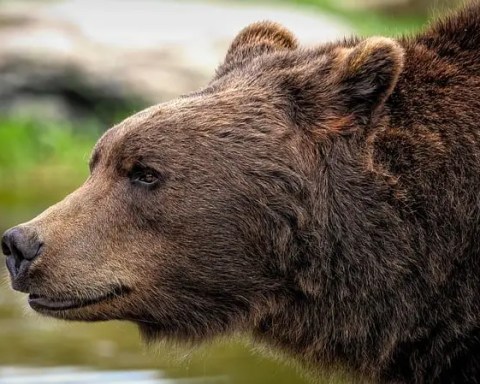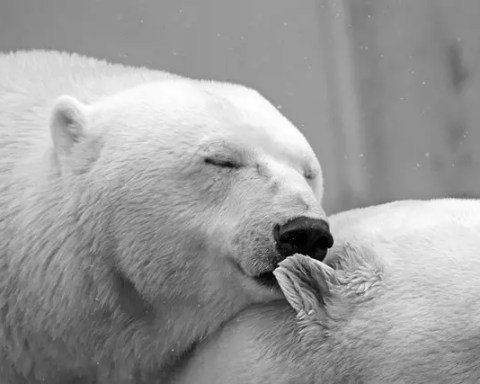A part from ringed seals polar bears also consume bigger prey animals such as whales. But they do not seem to actively hunt live whales (may be they do but very few evidences are there to support the argument). Depends on the location ice bears love to feed on whale carcasses. In the Western Hudson Bay, Beaufort Sea, and the Davis Strait the bear has a varied diet. In these Canadian arctic regions, bears often smell whale carcasses miles away and begin feed in groups. This is quite unique behavior almost contrary what many believe that polar bears are lone feeders. While they wander alone for days across the polar ice polar bears mostly eat bigger meal such as whale carcasses in groups of three to four individuals.
Do Polar Bears Eat Whales?
Yes they probably do! In Kaktovik researchers found out that a group of 3 – 4 polar bears were feeding on a dead carcass of a beluga whale just like the scavengers in the African savannah. Thanks to their sharp canines with the help of which bears can rip off chunks of whale’s flesh. Every year in the Hudson Bay as many as 20 beluga whales are trapped in the sea ice. Polar bears know it—know it all too well. They smash the 2-feet thick ice with their powerful forepaws and kill the whales. Minutes later they will drag the whale out of water to take ashore.
Do Polar Bears Eat Bowhead Whales?
Yes! Polar bears eat bowhead whales. Many a times it happens that a bear drags a 10-meter bowhead whale off the shore and only in few hours’ time the arctic predator enjoys the taste of thick skin together with the whale’s blubber. The Inupiat of Kaktovik hunts whales every fall the remains of which are left on the edge of town for polar bears to consume. The authorities have allowed natives to hunt only 3 whales each season. This can provide the carcass meal to the adult polar bears that are too old to hunt seals.
Do Polar Bears Eat Sperm Whales?
Andrew Derocher, a biologist saw polar bears feeding on carcass of a sperm whale in the Svalbard. Sperm whales are usually found in the North Atlantic waters but they possibly traveled north to find food.




